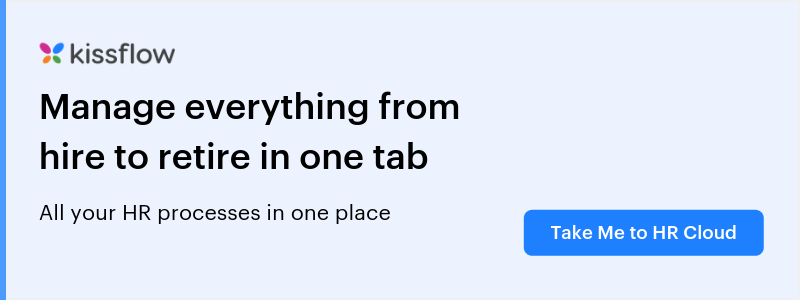In a company where human capital is of utmost importance, the HR team has some important roles to play— hiring, on-boarding, staff training, benefits/payroll management, you name it. Manually processing these tasks might lead to errors, inefficiencies and miscommunications. Solution?
A Human Resource Management System that can help you automate your hr workflows and reduce the inn-efficiencies associated with these processes. But not every HRMS Software is a good fit for SMBs.
Top 5 reasons why SMBs have trouble choosing most HRMS or HCM:
1. Too Generic
Most HR software are designed to work for lots of companies and hence, you as a customer end up getting “The Least Common Denominator” that works for most. So, you have to cut your legs to fit the shoes. Would you?
2. Approval Flows are Different
The most important aspect in any automation at “work” is how the workflows between various stakeholders like line-managers, functional heads, department heads, HR team, finance team etc.
These flows vary even across companies that look similar from the outside. The key reason for this variation is the “culture” of each company, e.g. flat approval structure vs tiered approval process. Most HRIS systems have a rigid flow making it inflexible to adapt to an environment.
3. Created for Big Companies
Software companies make big money when they are selling to big companies, unlike when they sell to SMBs. So, most HR software are created and designed with only the big companies in mind.
HRMS software is no exception. Due to this, you end up getting a blot-ware with less than 20% of the features being used and low employee adoption due to cumbersome usability.
4. Missing the Mobile
HRMS Softwares were created in the pre-mobile era. Today, we are in the era of BYOD and pretty much everyone has a smartphone. Collaboration and real-time interaction is a must and most HR systems have poorly-implemented mobile capability.
5. Too Expensive
Last but not least, most HR systems cost a heck of money making it unaffordable for SMBs. The key point to note here is, for an HR automation to be successful, it has to be rolled out across the entire organization. Most price points make it impossible to roll out company-wide. What you need is a software that doesn’t cost more than a few bucks a month on a per-employee basis.
So, when you’re faced with these challenges, what do you turn to?
The answer: A HR software that can automate your HR processes.

